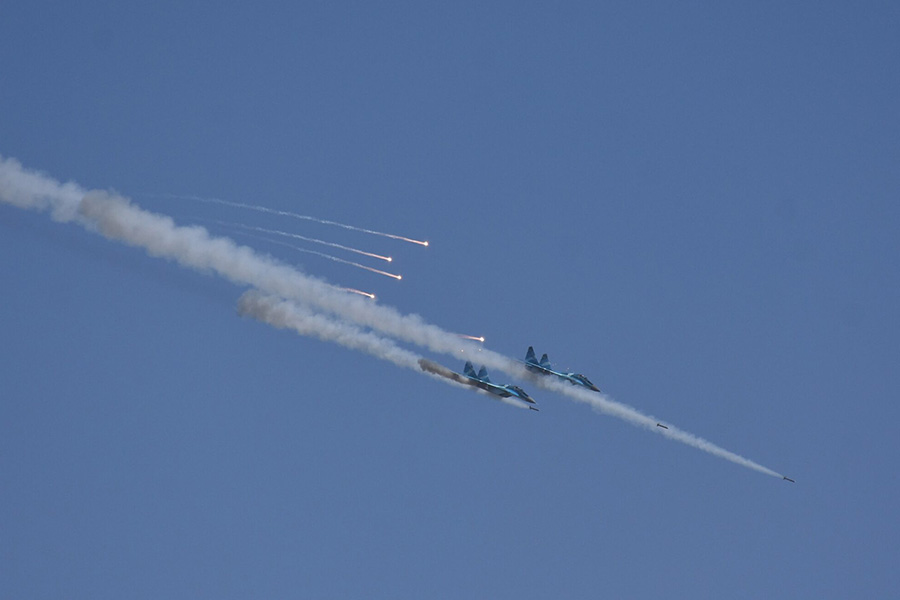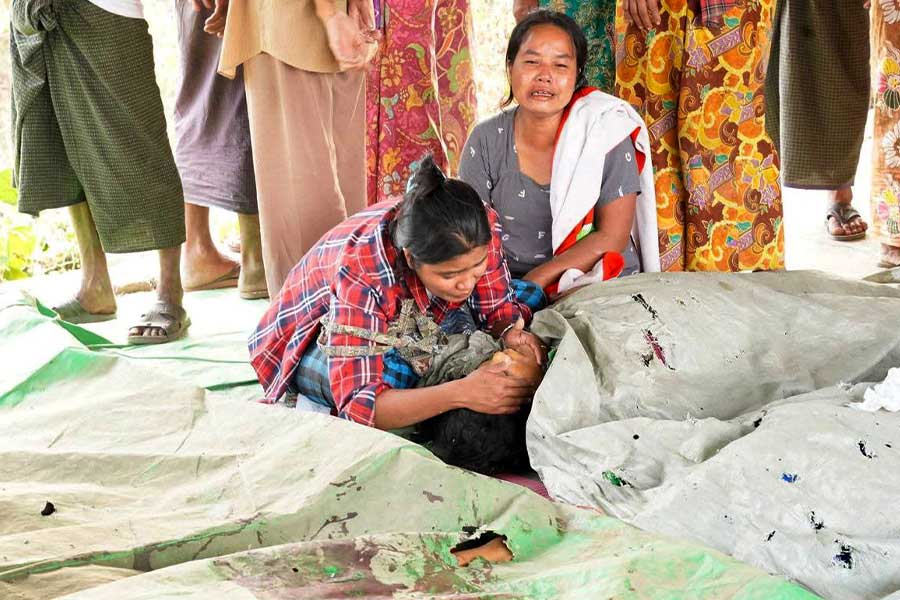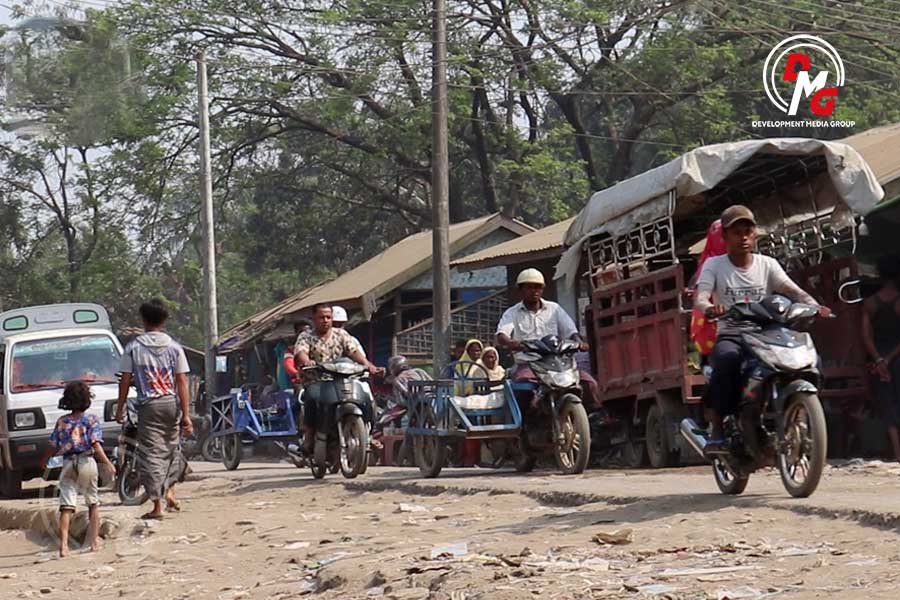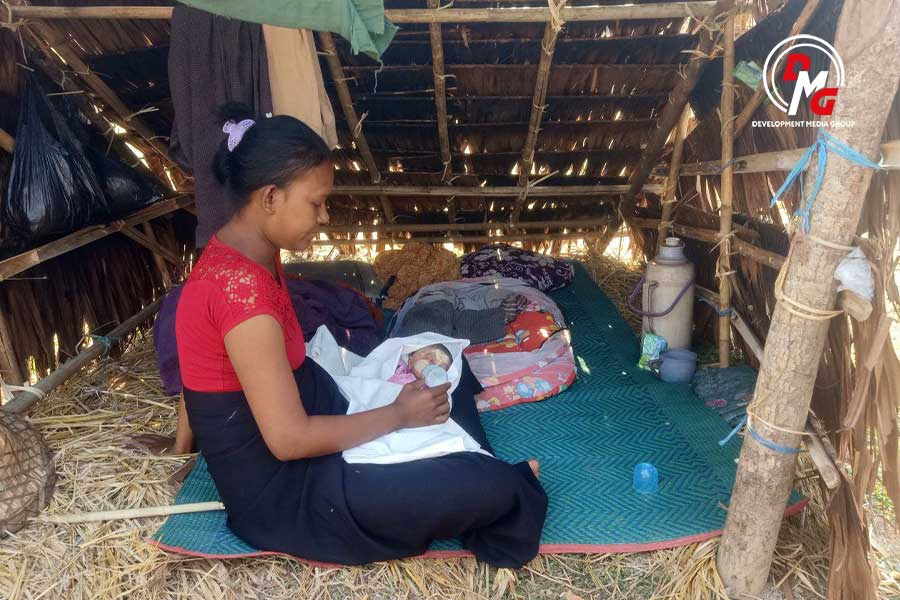- Arakan residents call for air raid warning systems amid surge in junta airstrikes
- Arakan’s Breathing Space (or) Mizoram–Arakan Trade and Business
- Death toll rises to 18 after junta airstrike on Ponnagyun village market
- Regime arrests dozens of Muslims in Sittwe over alleged Arakan Army links
- Over 200 IDPs in Ponnagyun struggle without shelter, food aid
China believed to have pressured Arakan Army amid ceasefire moves
A report by the BNI-Myanmar Peace Monitor suggests that the recent ceasefire between the Myanmar National Democratic Alliance Army (MNDAA) and the Ta'ang National Liberation Army (TNLA) - both members of the Three Brotherhood Alliance - and the Myanmar military regime could lead to negotiations with the Arakan Army (AA) under pressure from China.
10 Nov 2025

DMG Newsroom
10 November 2025, Mrauk-U
A report by the BNI-Myanmar Peace Monitor suggests that the recent ceasefire between the Myanmar National Democratic Alliance Army (MNDAA) and the Ta'ang National Liberation Army (TNLA) - both members of the Three Brotherhood Alliance - and the Myanmar military regime could lead to negotiations with the Arakan Army (AA) under pressure from China.
The report said the ceasefire between the regime and its allied forces was difficult to regard as one that would bring genuine peace.
"The military regime is likely to continue to increase airstrikes and ground offensives across the country. Therefore, it is essential for anti-regime forces to strengthen their unity and joint activities in the areas they control," the BNI-Myanmar Peace Monitor said.
According to the report, the TNLA controlled 12 townships in northern Shan State after launching Operation 1027. The regime conducted more than 270 airstrikes in these areas, with 80 percent taking place after the TNLA gained control.
The regime reportedly recaptured Nawnghkio, Hsipaw and Kyaukme townships through ground fighting, and retook Mogok and Momeik with Chinese assistance, forcing the TNLA to hand over five towns.
There is currently a ceasefire between the regime and the MNDAA, during which the former, with Chinese support, regained control of Lashio, previously held by the MNDAA.
The BNI report noted that Nawnghkio and Kyaukme - now under regime control - along with Mogok and Momeik, where TNLA troops are to withdraw under the ceasefire, were among the areas most affected by the regime's airstrikes. Lashio, which the MNDAA was compelled to return to the regime in April due to Chinese intervention, was also heavily hit.
Although the regime has achieved ceasefires in northern Shan State, it has continued sporadic airstrikes on areas held by the Arakan Army, another member of the Three Brotherhood Alliance.
"If you look at the regime's operations in TNLA-controlled towns in northern Shan State, they first carried out heavy airstrikes and then advanced with ground forces. So, if you look at the airstrikes on Ponnagyun, Rathedaung and Pauktaw townships in Arakan State, it remains to be seen whether ground forces will also launch offensives," said a military observer in Arakan State.
The MNDAA and TNLA have reached ceasefire agreements with the military regime, leaving the Arakan Army as the only group among the alliance still engaged in active fighting.
The BNI report concluded that the ceasefire agreements were not genuine peace efforts but rather the result of Chinese pressure and the regime's intensified airstrikes.

















.jpg)